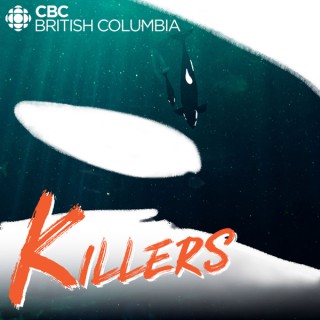Killers: J pod on the brink
Follow Killers: J pod on the brinkHost Gloria Macarenko delves into our fraught love affair with the iconic and endangered Southern Resident Killer Whales who have become political poster children for climate change. What’s killing J ...
- Aug 5, 2019 LATEST EPISODE
- infrequent NEW EPISODES
- 28m AVG DURATION
- 6 EPISODES
- 1 SEASONS
More podcasts from CBC Radio
Latest episodes from Killers: J pod on the brink

J pod is an urban orca family, but have we made the very water they swim in uninhabitable? And why are other orca populations thriving along the same tainted coast line? From pollution to the blob, we ask, are major ocean changes a killer?

It’s 1964, and J pod ancestor Moby Doll is harpooned and put on display at Vancouver’s waterfront. The crowds are delighted, until he dies. It’s the beginning of a fraught love affair with orcas that is mirrored today in aquariums and whale watching. Is our attraction to J pod a killer, or can our love save this family?

A family matriarch, J35’s mother, is showing sure signs of peanut head. The experts agree: the Southern Residents are not getting enough fish to eat. But is it as simple as a decline in Chinook salmon? We head out on the latest research expeditions to investigate: is starvation a killer?

J pod is a poster child in a nation-wrenching debate over a pipeline expansion, and it all comes down to the impact of increased vessel traffic. We take a journey along the noisy west coast waterfront to unravel the mysteries of orca communication, and ask, is noise a killer?

Hope turns to dismay as a new J pod calf dies before researchers arrive. When mother J35 carries its corpse for 17 days and 1000 miles, the world wakes up to the plight of the Southern Residents. Some call it grief; others, a message, and the drama of that hot summer becomes a symbol of the struggle to save J pod.

A killer whale mother captivates the world as she carries her dead calf for 17 days. Some call it grief; many say it is a wake-up call for the plight of her endangered pod, and the health of our oceans. Killers: J pod on the brink asks what’s responsible for the struggles of the Southern Resident Killer Whales? Can we save this iconic family? What happens if we don’t?

















